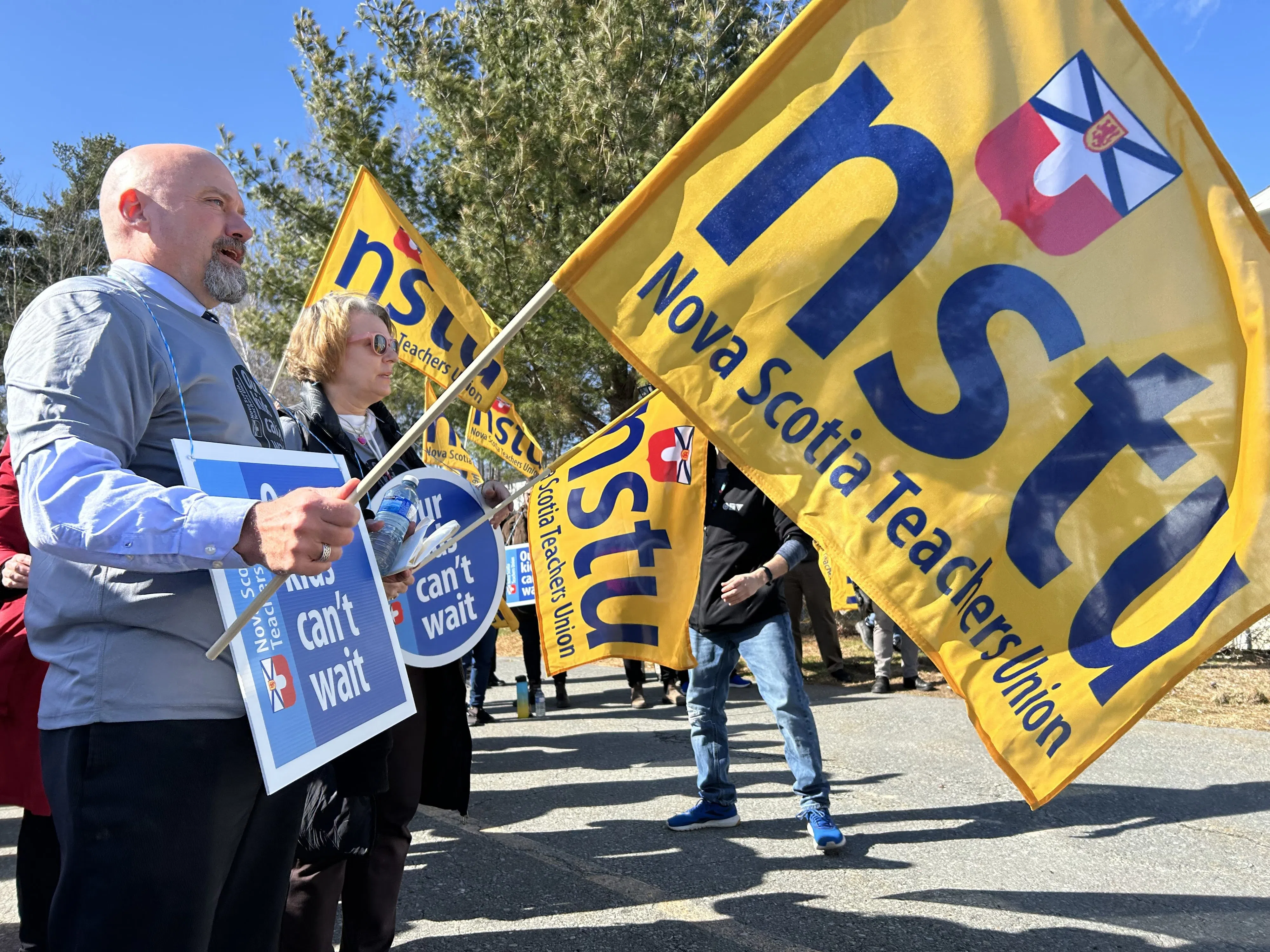The Nova Scotia Teachers Union rallied on Wednesday to draw attention to the provincial government’s inaction on collective agreement negotiations.
Ryan Lutes, president of union, says that teachers are facing a lot of challenges, like a record amount of violence in schools, teacher retention, working conditions and wages, and the province needs to address those things.
“This government hasn’t been hearing us so far, so we’re going to make them hear it now,” says Lutes.
“Every day that goes on that those aren’t addressed, teachers are losing out. Kids are losing out, and they’re losing a lot of services that they deserve.”
On Thursday, union members will vote on whether they will give power to the union to call a strike. The vote is electronic and Lutes says results should be in Thursday evening.
Nearly 500 people attended the rally. Lutes and others gave speeches outside the Royal Canadian Legion, and then the crowd walked to Sackville Drive, waving NSTU flags as people drove by and honked.
Lutes was glad to see so many teachers there. He hopes that their loud voices will show the province they need to address problems with the education system.
The union has been negotiating with the province for the last 10 months but now the province won’t budge, he says.
“They’re not taking negotiations with teachers seriously. And we’re really just looking for them to have a wake-up call and to address those concerns,” he says.
Lutes says the union and the teachers don’t want to strike. Lutes has two children in public schools. He wants them to keep going to class so they can learn. The union hopes that, because of the rally, the government will come back to deal at the table. But if the government doesn’t address their concerns in a new collective agreement, then he says they’ll have to strike.
“This government hasn’t been hearing us so far, so we’re going to make them hear it now,” says Lutes.

Cindy Gillis, a guidance counselor, often has to fill in as a substitute teacher because of a staffing shortage, she says. (Jacob Moore/Acadia Broadcasting)
Of the nearly 2000 teachers surveyed in October 2023, the union found 84 per cent of them have contemplated quitting in the last five years.
Cindy Gillis has been a teacher for more than 25 years.
She, too, has contemplated quitting. But she’s close to retirement, with about eight years left.
“I’ll try and hang on if I can, just to get through,” says Gillis.
But it’s discouraging, she says, because even new teachers come into the job feeling burnt out, wondering how they could do this for 20 or 30 years.
“It would be impossible unless we start seeing some changes to our school systems,” she says.
Burnout makes it difficult to retain teachers, but that’s also related to other issues, like working conditions, she says. More demands are piling onto teachers while they get less and less resources, and one example, she says, is a lack of lesson preparation time.
She is also typically a guidance counselor, but because of a shortage in teaching staff, she’s often called on to substitute teach. That leaves students, who may need reading assistance or other resources, without things they need, things they’re entitled to, she says.
The union also wants to improve wages because, the union says, substitute teachers aren’t paid enough.
Gillis says teachers are doing the jobs of three people in the classroom.
“Part of the problem is the burnout and the stress. There’s many teachers going off on stress leave. They’re going off completely burnt out. Then we’re having a hard time getting teachers in to replace them because those substitute teachers know exactly what they’re walking into,” says Gillis.
“They’re thinking, ‘This is not sustainable.’”






